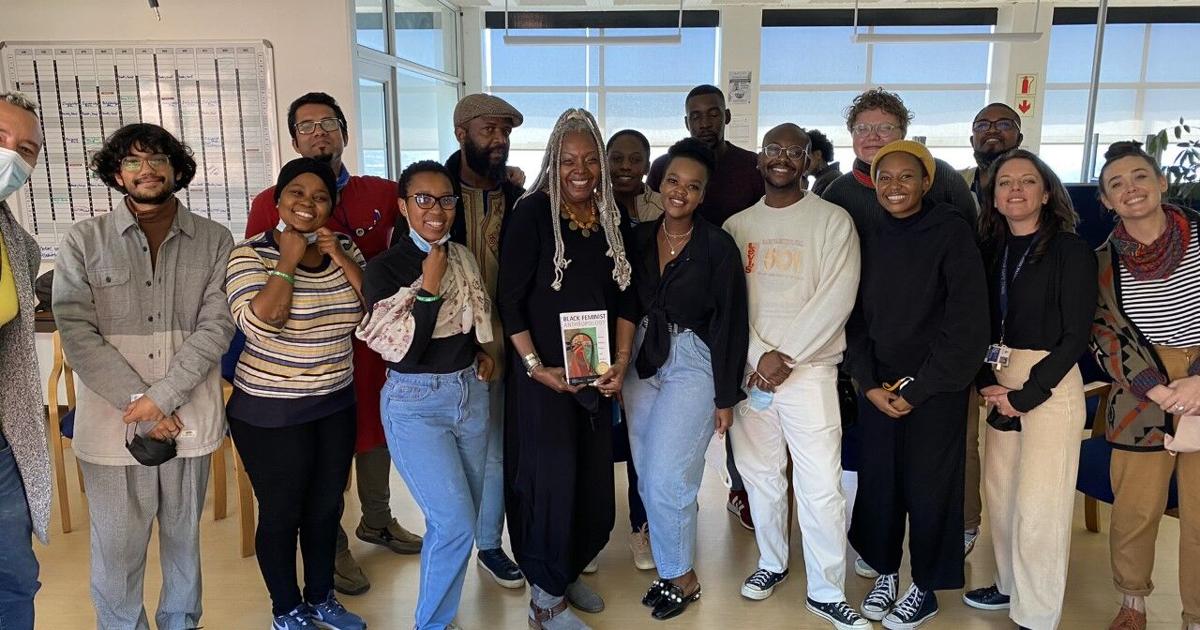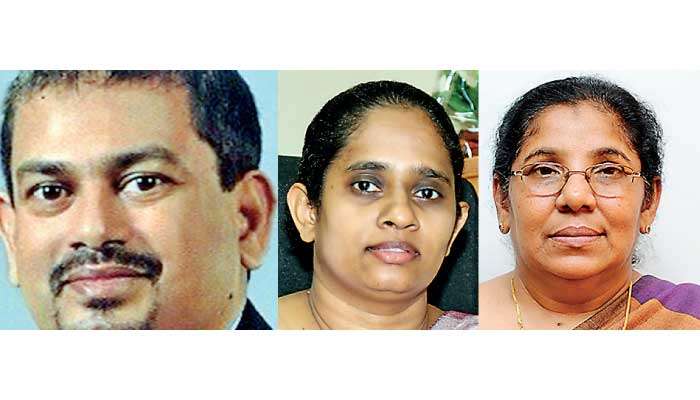When you search for something online, there’s a good chance you’ll find it on Google. The company handles around 90% of the world’s search traffic and makes money selling ads based on what they know about you. But, there are competitors offering the ability to search privately, including a new one from those who learned the trade at Google.
Sridhar Ramaswamy worked in advertising at Google for 15 years. He is the co-founder of Neeva – an ad-free, subscription-based search engine that will be launched on Tuesday. But why would people pay $ 4.95 a month for something they’re used to getting for free? The following is an edited transcript of our conversation.
Sridhar Ramaswamy: It’s more than privacy. In my mind, what we’ve learned over the past 10 years is that if a product is free then you are the product. The $ 150 billion in search engine advertising, paid for by advertisers, actually comes from you and me. So that’s a cost we all bear, and in many ways we believe that a customer-centric model, where people pay a small fee, serves us all better in the long run. And we all pay for the water that comes to our tap. It is a high quality and low cost product. We don’t mind because it offers such immense value. I think online services should be more like water that goes through our tap than some hidden mechanism that makes money without us really knowing it, but ultimately we pay for these products.
Amy Scott: As users start to try this out, what do you want them to know from the experience so that they don’t get frustrated and just jump on Google or give up? I mean, is it gonna be a worse experience?
Ramaswamy: As a first step, we encourage our first users to give us their comments. This is what makes the product better. We are just starting to build this search engine. We see ourselves a lot as a complement to Google. You know, are we happy with where we are? Absolutely not. But I would have given you the same answer if I was working at Google on search quality. It is a continuous journey.
Scott: When you say that Neeva will be a complement to Google, do you mean at the individual level, so people will use both here and there? Or do you see it sort of split between Camp Neeva and Camp Google?
Ramaswamy: So I think people generally make decisions about what they want to use as their primary search engine. So for a particular user, for example, what they define as the default search engine ends up being the search engine that receives most of their queries. For example, clearly I am a Neeva user, but every now and then I will want to look at a Google Scholar because it is a specialized site that offers things that Neeva does not yet offer. So we see this as a choice at the user level.
Scott: So you said that you already have thousands of users who have tested this. What do you know about what brought them to this? Are they primarily concerned about privacy or do they want an ad-free experience?
Ramaswamy: Well, for us, the magic phrase that drives people is “private ad-free search engineâ€. This is why the majority of people who try Neeva try it. And then in terms of segments of people who have shown an affinity with Neeva, Neeva has been a big hit with parents, with moms doing a lot of online shopping, for example. They like the uninfluential experience they get with Neeva. It has also been a hit with older people as there is a lot of worry and worry about being followed, clicking the wrong link, and doing weird things when you do that. That security that we give them, both in the ad-free experience, but also by doing things like preventing tracking, resonates a lot with them. And so it becomes a combination of things. Different people end up liking different aspects of Neeva. But “private without advertising” sets them in motion.
Scott: As we discussed, you have been at Google for a long time. Have you ever thought about trying to create a change on the inside, instead?
Ramaswamy: So I led a lot of big changes at Google, and I didn’t really think a project like this could be attempted within the company. It goes too close to the fundamentals of how a business works. It is possible that less money is being made overall with subscription companies. Starting from scratch allows you to focus on success instead of worrying about replacement income, which is always difficult for a business.
Scott: Disinformation has obviously been a huge challenge for everyone who works on the Internet and for Google. How do you plan to counter this?
Ramaswamy: Well, at some level we want our users, our customers to have control over that. That’s why we let people tell us who their favorite information providers are. So when you’re looking for information, it comes first. We’re also actively looking to work with companies like NewsGuard that actually create a nutrition label for news. In general, helping people navigate the online world with a lot more information about the type of site they are viewing and how reliable the information is is something that we believe is at the heart of our mission. For example, on programming queries, we want to make sure that people can easily distinguish between official sites providing documentation and ad-supported sites which are sometimes good, but are generally of uneven quality. Likewise, we are working on a medical queries project where you will be able to see what information is coming from a government site or non-profit organization like a reputable hospital or educational institution, as opposed to a site whose content is mostly anonymous. writers and who may or may not have editorial boards. Previous search engines have largely refrained from revealing this type of information due to the belief that it is impossible to obtain it. So we think there is a lot more we can do to help people understand where information is coming from and the motivations behind the different types of sites out there, and really help them make better decisions when looking for and consuming information on the Internet.
Scott: It seems, however, that by giving people preference for their news sites, you are risking the echo chamber problem a bit. How do you see access to information in terms of personalization to the point of excluding contrary opinions?
Ramaswamy: I mean, some of these things are already happening in the sense that we don’t have subscriptions to every possible site. We express our preferences, and what Neeva does is help you access sites with which you already have a relationship or for which you have a preference. Your larger point on unintentionally creating echo chambers is certainly important, and the kinds of things we want to do there are things like being able to see someone else’s views. So one of the things we talked about is being able to get some of our more well-known Neeva clients to make their preferences public? So we have ideas like that about how we continue to have, to offer broad perspectives to people.
Scott: Finally, tell me about the name.
Ramaswamy: Oh, I wish I had a smart story to tell you about “Neeva”. It’s really hard to find a name. And so, we made a list of syllables that we liked the names of, and I literally wrote a program to generate all of the two-syllable names and Neeva is the best we can handle. It took, like, a year and a half to get “Neeva.com” after that.
Related Links: More information from Amy Scott
I have spent some time at Neeva-ing, with mixed results. I searched for a cafe and got results for Gainesville, Florida; Georgia, Indianapolis and Phoenix. Which is good, but my location was fixed in Baltimore. It’s the beginning.
To give you an idea of ​​the height of the hill Neeva is trying to climb, journalist Daisuke Wakabayashi had a story in the New York Times last year why Google is so dominant in search and why it will be difficult for anyone to catch up. At the time, Google indexed around 500 to 600 billion web pages, a number that is constantly growing.
Its closest competitor, Microsoft’s Bing, had indexed between 100 and 200 billion. Due to Google’s dominance, websites often provide better access to Google crawlers, the computers that crawl the web to index content. Software engineer Zack Maril did extensive research and found that sites like PBS Kids, Alibaba, and ScienceDirect allow Google’s crawlers to access content they denied to others. Doing all that web crawling to build an index is expensive, one of the reasons startups have failed or rely on the work of others. Neeva said he does some of his own crawling, but also uses Bing’s application programming interface for basic search results.
And Neeva isn’t the only search engine to offer privacy to its users. DuckDuckGo does not follow you around the web or share your data, and the Brave ad blocker browser now offers a private search feature in beta called Courageous research. Brave is building an index independent of the web but will integrate results from Google and Bing. The plan is to offer an ad-supported free version and a paid ad-free option.
Finally, Google itself is committed to offering users more privacy. Last year, the company said it would no longer allow third-party cookies on its Chrome browser by 2022. Advertisers use these cookies to track your browsing data and show you targeted ads, and many wanted more. time to adapt to new technology that replace cookies. Some have yet to be sold over Google’s claims that its replacements are almost as effective as cookies. Now Google is delaying those plans by a year, saying it needs to scale to a “responsible pace”.
It was great to be with you last month while Molly Wood is on a mission. On Wednesday, Kimberly Adams takes over for a while.
 Xing Wu
Xing Wu



